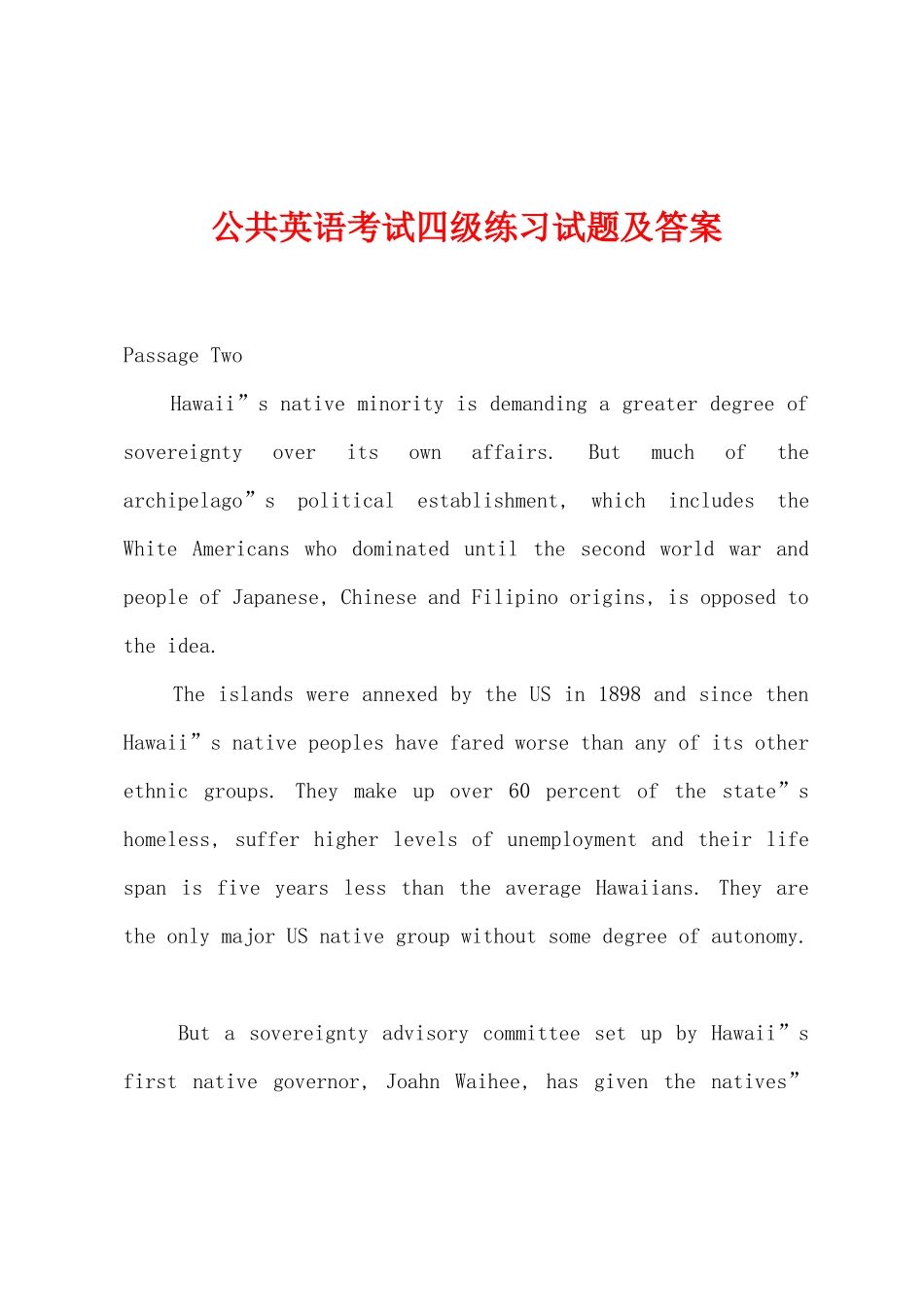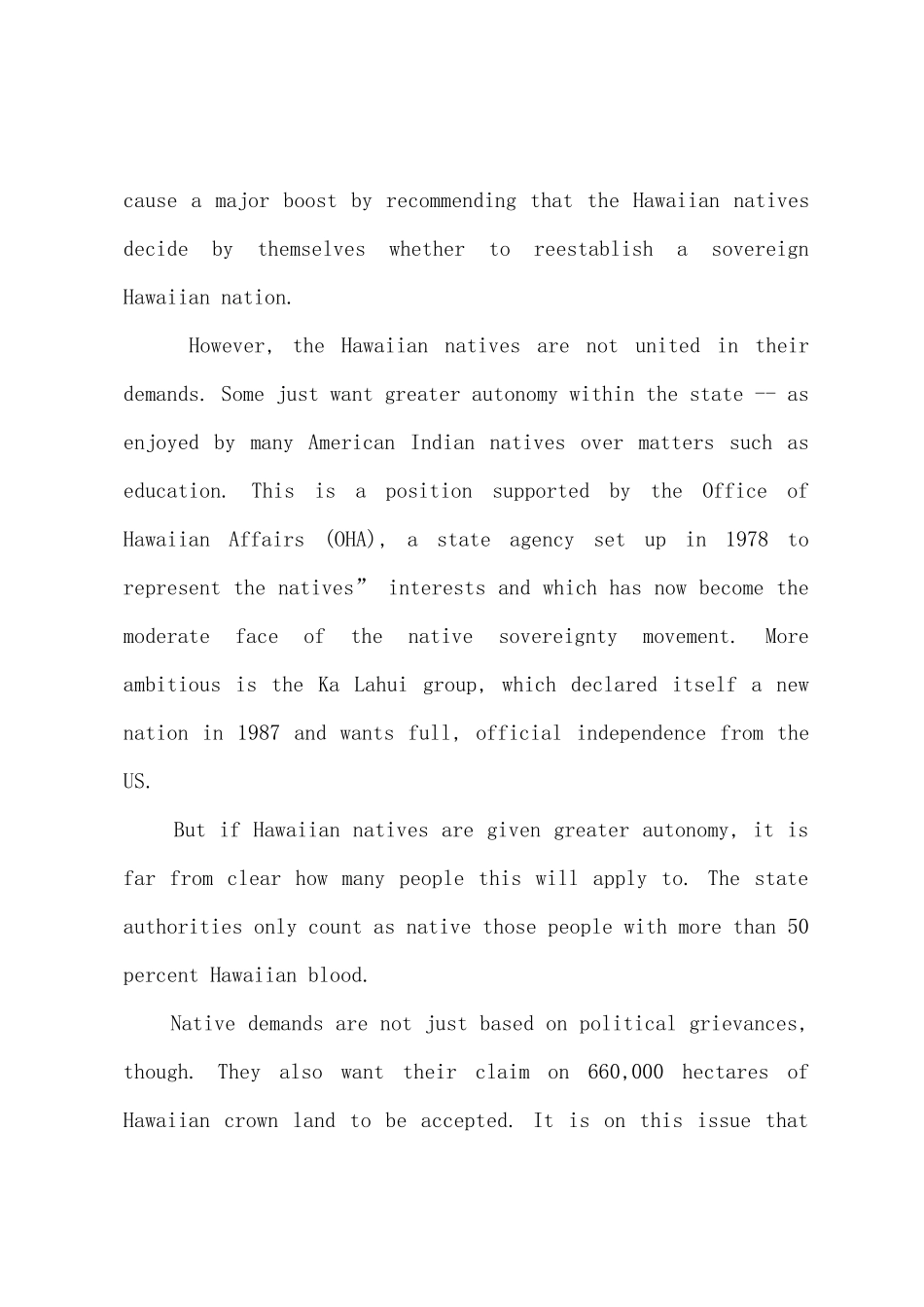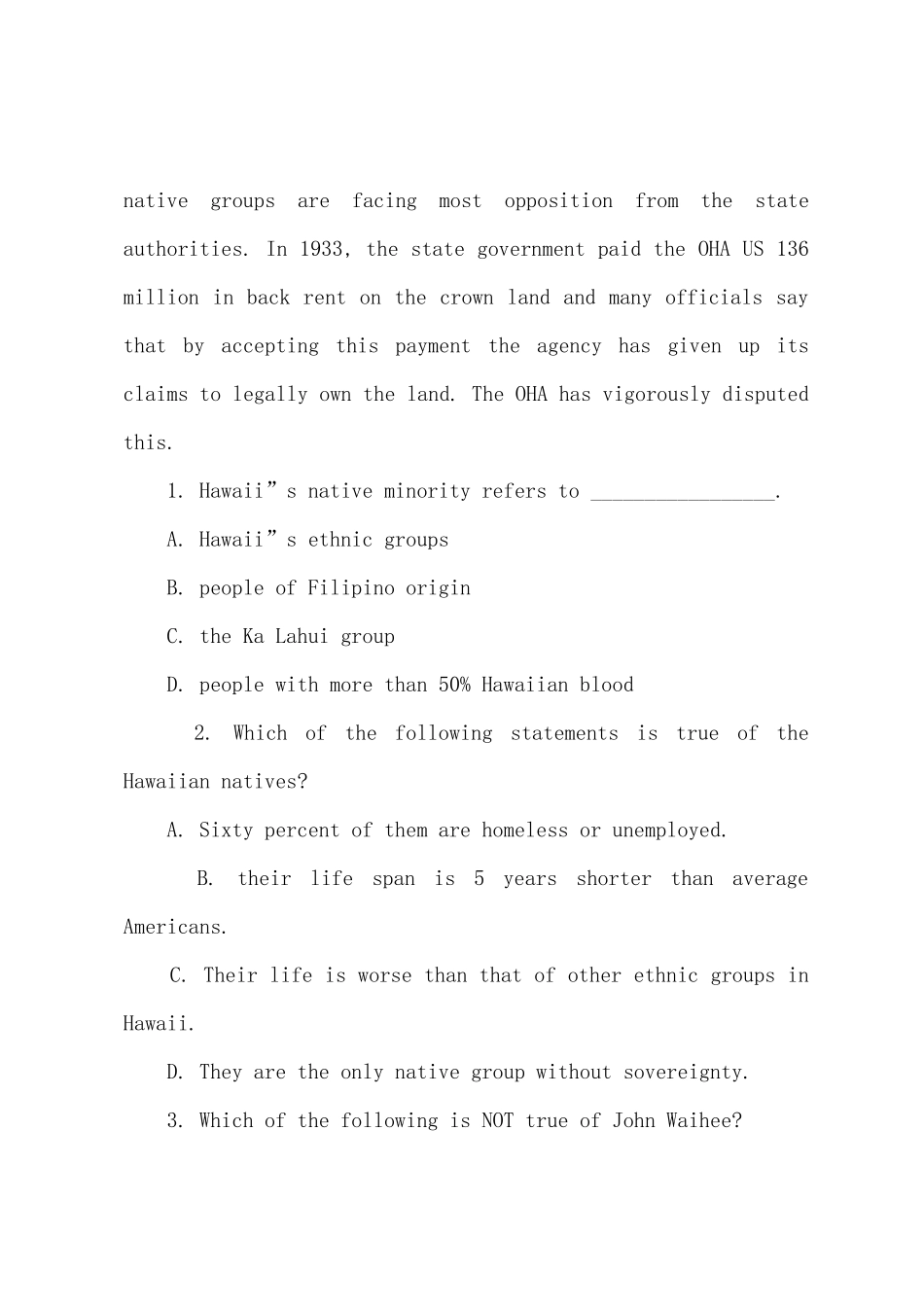公共英语考试四级练习试题及答案Passage Two Hawaii”s native minority is demanding a greater degree of sovereignty over its own affairs. But much of the archipelago”s political establishment, which includes the White Americans who dominated until the second world war and people of Japanese, Chinese and Filipino origins, is opposed to the idea. The islands were annexed by the US in 1898 and since then Hawaii”s native peoples have fared worse than any of its other ethnic groups. They make up over 60 percent of the state”s homeless, suffer higher levels of unemployment and their life span is five years less than the average Hawaiians. They are the only major US native group without some degree of autonomy. But a sovereignty advisory committee set up by Hawaii”s first native governor, Joahn Waihee, has given the natives” cause a major boost by recommending that the Hawaiian natives decide by themselves whether to reestablish a sovereign Hawaiian nation. However, the Hawaiian natives are not united in their demands. Some just want greater autonomy within the state -- as enjoyed by many American Indian natives over matters such as education. This is a position supported by the Office of Hawaiian Affairs (OHA), a state agency set up in 1978 to represent the natives” interests and which has now become the moderate face of the native sovereignty movement. More ambitious is the Ka Lahui group, which declared itself a new nation in 1987 and wants full, official independence from the US. But if Hawaiian natives are given greater autonomy, it is far from clear how many people this will apply to. The state authorities only count as native those people with more than 50 percent Hawaiian blood. Native...


